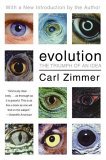Today's NYT features this excellent defense of science by Dennis Overbye. My favorite part:
The knock on science from its cultural and religious critics is that it is arrogant and materialistic. It tells us wondrous things about nature and how to manipulate it, but not what we should do with this knowledge and power. The Big Bang doesn’t tell us how to live, or whether God loves us, or whether there is any God at all. It provides scant counsel on same-sex marriage or eating meat. It is silent on the desirability of mutual assured destruction as a strategy for deterring nuclear war.
Einstein seemed to echo this thought when he said, “I have never obtained any ethical values from my scientific work.” Science teaches facts, not values, the story goes.
Worse, not only does it not provide any values of its own, say its detractors, it also undermines the ones we already have, devaluing anything it can’t measure, reducing sunsets to wavelengths and romance to jiggly hormones. It destroys myths and robs the universe of its magic and mystery.
So the story goes.
But this is balderdash. Science is not a monument of received Truth but something that people do to look for truth.
That endeavor, which has transformed the world in the last few centuries, does indeed teach values. Those values, among others, are honesty, doubt, respect for evidence, openness, accountability and tolerance and indeed hunger for opposing points of view. These are the unabashedly pragmatic working principles that guide the buzzing, testing, poking, probing, argumentative, gossiping, gadgety, joking, dreaming and tendentious cloud of activity — the writer and biologist Lewis Thomas once likened it to an anthill — that is slowly and thoroughly penetrating every nook and cranny of the world.
Nobody appeared in a cloud of smoke and taught scientists these virtues. This behavior simply evolved because it worked.
It requires no metaphysical commitment to a God or any conception of human origin or nature to join in this game, just the hypothesis that nature can be interrogated and that nature is the final arbiter. Jews, Catholics, Muslims, atheists, Buddhists and Hindus have all been working side by side building the Large Hadron Collider and its detectors these last few years.
And indeed there is no leader, no grand plan, for this hive. It is in many ways utopian anarchy, a virtual community that lives as much on the Internet and in airport coffee shops as in any one place or time. Or at least it is as utopian as any community largely dependent on government and corporate financing can be.
Arguably science is the most successful human activity of all time. Which is not to say that life within it is always utopian, as several of my colleagues have pointed out in articles about pharmaceutical industry payments to medical researchers.
But nobody was ever sent to prison for espousing the wrong value for the Hubble constant. There is always room for more data to argue over.
So if you’re going to get gooey about something, that’s not so bad.
It is no coincidence that these are the same qualities that make for democracy and that they arose as a collective behavior about the same time that parliamentary democracies were appearing. If there is anything democracy requires and thrives on, it is the willingness to embrace debate and respect one another and the freedom to shun received wisdom. Science and democracy have always been twins."Odd as it may seem coming from a proud participant of this "utopian anarchy", I couldn't agree more! The entire essay is well worth reading.
read more | digg story













0 comments:
Post a Comment